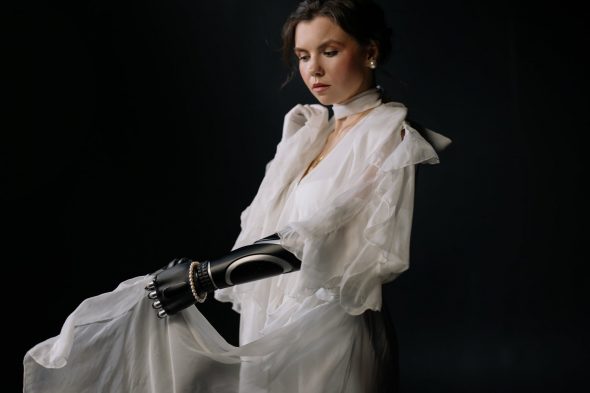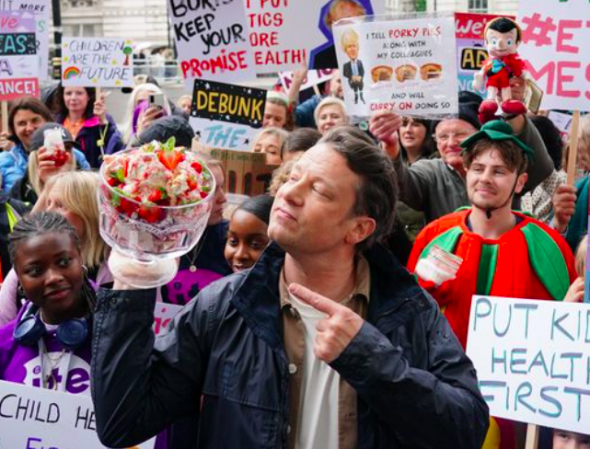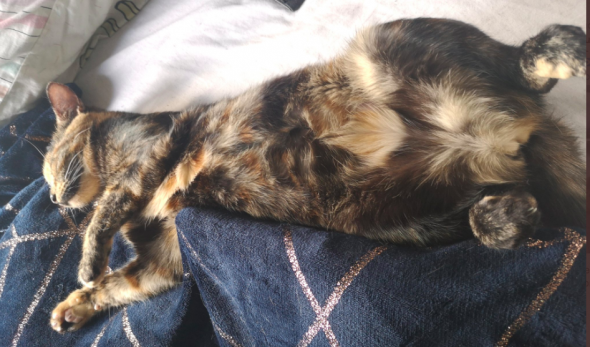Millions of people are currently struggling to heat their homes, pay their bills and afford food in the toughest Cost of Living Crisis the UK has seen in 30 years. In our new series, The Disabled Cost of Living, we will hear how disabled people are disproportionately affected, due to their lives already costing more and being valued as less.
I spent most of the drive from my partner’s house to my flat thinking of all the things I could do with the backpay.
A holiday? A whole new wardrobe? A new computer?
Well, not quite. I was daydreaming about paying off debt, an unbroken bed frame and name-brand chicken nuggets. Not quite the luxuries that mainstream media peddles that benefit users get. But a cushion of some kind, a safety net.
But then I had to look at the news.
The rising cost of bills. The ticking clock of climate change. Petrol prices peaking. Cuts to benefits and cold-weather discounts. The cost of living crisis.
Goodbye safety net.
It’s interesting, trying to get money advice as a mostly housebound disabled person.
I don’t go out clubbing and pay for expensive cocktails. My clothing brand of choice is secondhand. I don’t think I’ve ever even tasted an Avocado let alone put it on toast so that should have saved me already, surely.
When my conditions flare up so badly I’m stuck in bed for days at a time, at least I only have to worry about one room!
Most days start with my cat waking me up for breakfast. Her night shift as my free, furry hot water bottle has ended and now she’s my alarm clock. I make myself an iced coffee for my breakfast and she steals the straw when I’m done. It’s a cheap toy, at least.
I probably have two different panic attacks before noon.
There’s no way I can afford to pay someone to come in and help me round the house but carer’s allowance goes to friends and family that help, so at least they get compensated.
Help in the shower becomes a bonding, sweet experience with music and jokes and shower stools. Scrubbing the kitchen down is when I sit and gossip with my mum. Those moments don’t cost money – as long as I don’t look at my bank account and the direct debits.
When stress about the future is a constant thought, you get practice at shutting it out. Living as a disabled person can cost you an extra few hundred pounds you don’t have, but there’s a new cake show on Netflix! And streaming services split between three people is almost affordable, right?
Paper plates and cutlery are cheap in the supermarket and hey, that saves both physical energy and hot water energy. And if you don’t want to turn the oven on then call a cold dinner a charcuterie board and then it’s by choice.
Warmer weather is creeping in, so a lunch of breadsticks and cream cheese can be eaten outside on a blanket – then it’s a picnic! You can even Instagram it to make it seem like your life is together and trendy. The rich make poverty an aesthetic so why not do it while you’re living it?
Instant 13p noodles don’t seem so depressing when you make it your little nighttime routine with matching mugs and old anime. And the fairy lights aren’t because batteries are cheaper than your bills, it’s just mood lighting.
Denial. It’s the breadline’s best friend.
What else can I do? It’s easy to say to learn to budget better when you’re not living payday to payday. It’s harder when you’ve spent most of your life expecting not to make it this far and now you’re disabled, staring at your rapidly approaching 30s and there’s no support.
So, denial.
I ignore the post piling up by the front door for days at a time. I watch online TV shows and think about which subscription I should cancel. I eat another packet of crisps and a sandwich and think if it’s worth spending my last tenner on a kebab delivery because it’s probably cheaper than using the oven.
I use twitter and think about the news of ministers getting pay rises while I’ve not had my radiators on all winter.
I scroll through TikTok and think about the life the influencer must live before she gets online and says that “not eating at Greggs can save you enough money for a house deposit”. I look at the few treats in my life and wonder if they’re worth sacrificing for savings when there’s always an emergency to pay for.
A taxi trip to the hospital, a replacement mobility aid, helping a friend get food, forgotten debts coming through the mail.
I look at how many other disabled people are facing the cost of living crisis and think how nice it would be to have a snappy one liner to help us all. Just one new trick to pull us all out of poverty.
How often I already share links for DWP advances, council emergency grants, charities to help apply for benefits, places that give out food bank vouchers. I know what brands to shop to get two bags of shopping for a tenner. I know what you should say to get the right points for your PIP appeal.
I know the only real help I’m getting is from other disabled people in the same boat as I am. I know it’s not enough.
I know how to put words to paper so hopefully people will understand. I don’t know if the right people are going to listen. I know I am just one voice amidst thousands who are facing this crisis.
The cost of living crisis. The lack of dignity crisis. The no care in the country crisis. The wrong people in power crisis.
I take medication to make me sleep and still wake up in the night, panic at my throat. I hope for a few hours of unbroken sleep. I hope for better headlines when I wake up.
And the next day I do it all again.
Resources
Citizen’s Advice has lots of great guides but these two in particular:
If you’re struggling with living costs gives advice on how you can get help paying for food, rent, what benefits you may be entitled to and how to get help from your local council.
Using a food bank gives details on what to do if you have no money for food, if you’re shielding or self isolating, getting a referral to a Trussell Trust food bank, going to a food bank and what to do if you need to use one again.
Turn2Us Benefits Calculator can help you find out what you may be entitled to claim and also gives a detailed explanation of each different benefit.
The Social Fund covers cold weather payments, winter fuel payments, funeral payments and the Sure Start Maternity Grant that you may be eligible for.
If you are on certain benefits you may also qualify for a Budgeting Loan to help you buy furniture, pay rent, travel costs, clothes and other thins
Jack Monroe’s blog is full of actual money saving recipes that are easy to cook and fully costed. None of that just eat dried pasta bullshit.
Shout is a confidential mental health support service that is available via text. Free, 24/7. Text “SHOUT” to 85258.
Love our content? Want to help us pay disabled writers and continue to build this amazing platform? Find out how you can support us










